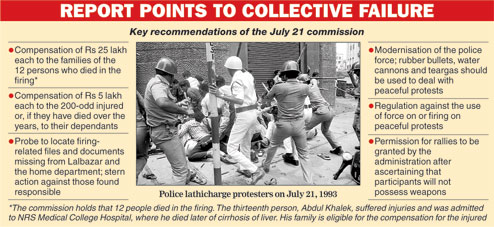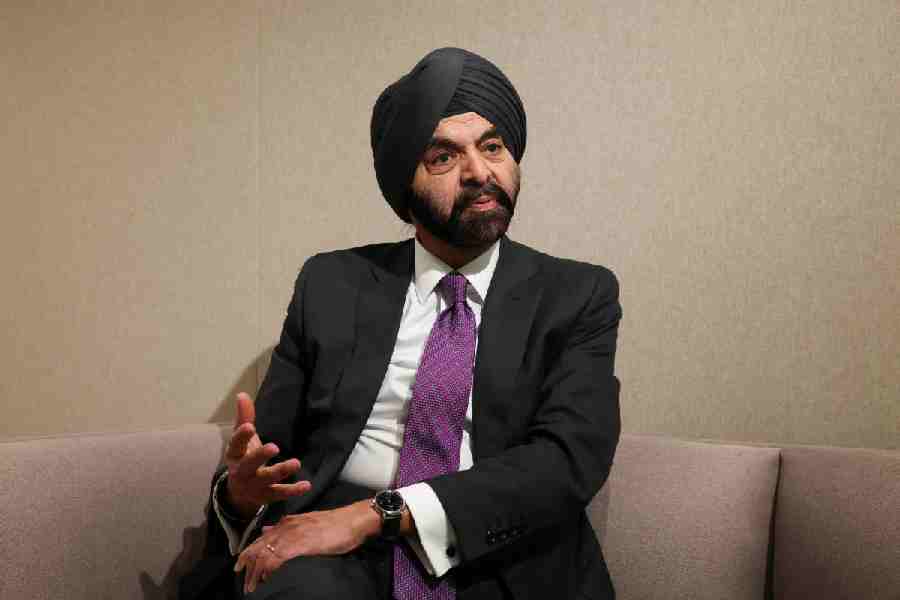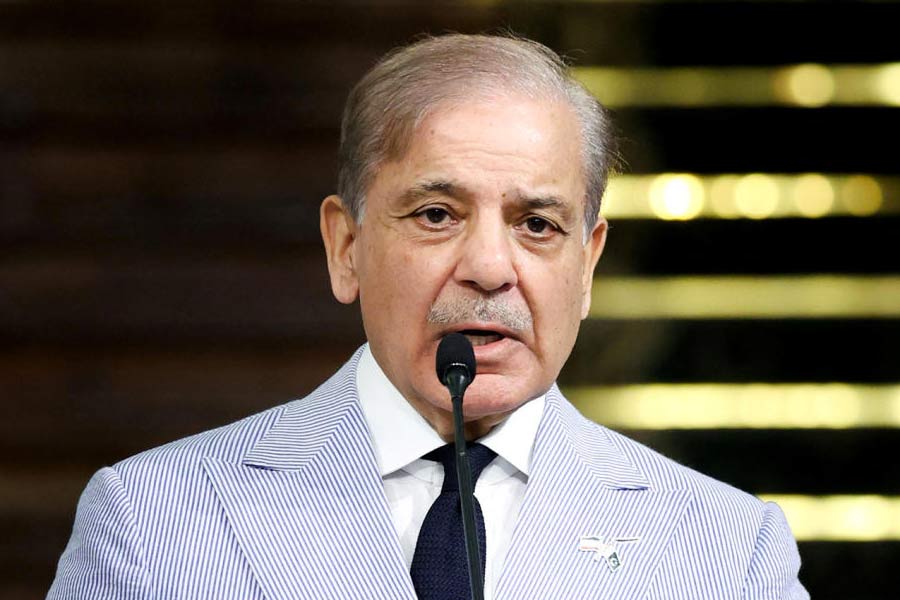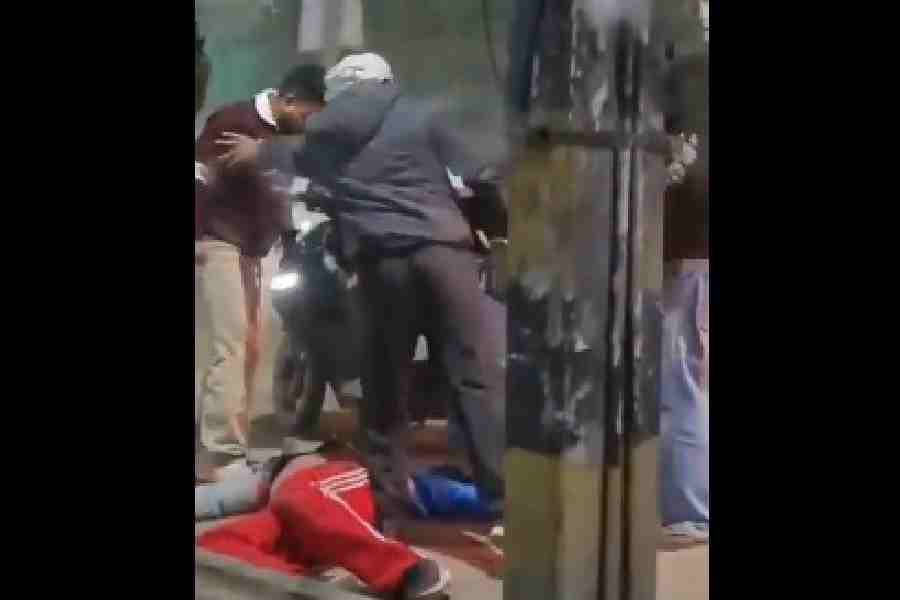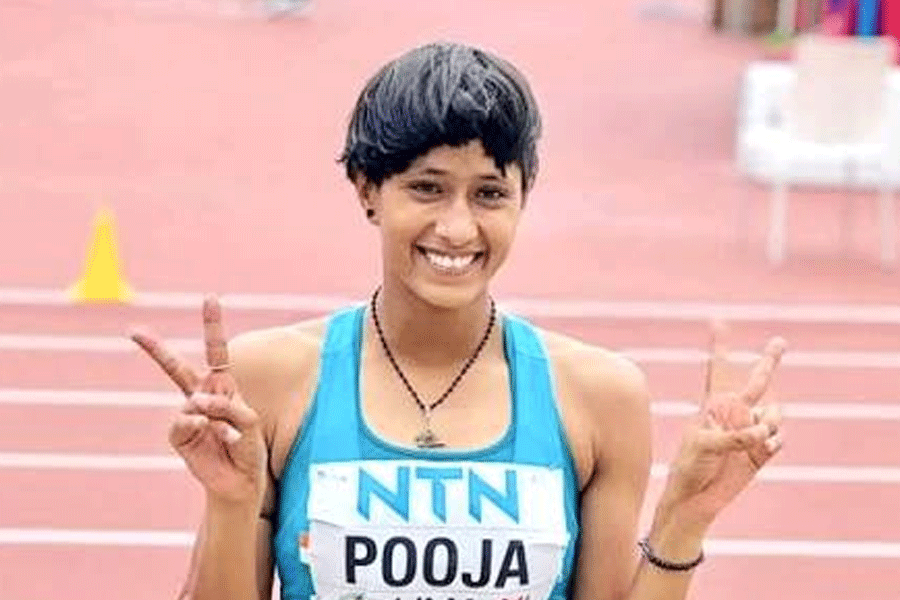
Calcutta, Dec. 29: The report of the July 21 commission, set up by the Mamata Banerjee government with the apparent aim of nailing the Left leadership over the police firing in 1993, has brought to light a discrepancy in the statements of minister Manish Gupta.
The 700-page report of the commission has not found any evidence against anybody from the Left Front and instead mentions that the firing, in which 13 Youth Congress supporters were killed, was the fallout of a 'failure' of the civil and police administration.
The lone member of the commission is Justice (retired) Sushanta Chatterjee, who was handpicked by Mamata in November 2011.
As the home secretary of Bengal on July 21, 1993, Gupta was the bureaucratic head of the police administration.
The report, large parts of which were read out to this newspaper by Justice Chatterjee this evening, points to a discrepancy between what Gupta, now the power minister, mentioned in a clarification to the Prime Minister's Office (PMO) and what he said in his statement to the commission.
The PMO, under then Prime Minister P.V. Narasimha Rao, had sought a clarification from the state home department after Mamata, the then Youth Congress president, alleged that the 'unprovoked' firing on the 'peaceful' democratic procession was orchestrated by then chief minister Jyoti Basu and his cabinet.
'To the PMO, he (Gupta) had stated: 'There is no fact and substance to the allegations (made by Mamata).' Before the commission he said under oath: 'That was not my comment. I was a signatory to the government's version.' This has been mentioned in the report,' Justice Chatterjee said.
On July 21, 1993, Mamata had led a march to Writers' Buildings demanding that voter cards be made mandatory to exercise franchise and accusing the CPM of rigging.
'The commission does not find the scope of pinning the responsibility on any particular individual. The commission finds failure on the part of officials in the home department in Writers' Buildings and police officials of the control room at Lalbazar,' Justice Chatterjee quoted from the report. '(They failed) to discharge their duties in protecting the fundamental right to life as guaranteed by the Constitution and in protecting the right to demonstrate peacefully,' the report adds.
Although Trinamul leaders put up a brave face and highlighted the portion of the report where the firing had been compared to the Jallianwala Bagh massacre of 1919, senior leaders said on condition of anonymity that the findings had 'embarrassed' the ruling party.
Officially, Trinamul MP Saugata Roy said: 'Prima facie, it appears the commission has said what we have been saying all along.'
Likening the 1993 firing to the Jallianwala Bagh tragedy, the panel's report states: 'The incident was ghastly and reminds one of Jallianwala Bagh. It was irregular, illegal, unjust, unfair and unconstitutional.'
More than 1,000 people were believed to have been killed in the firing ordered by Brigadier-General Reginald Dyer on a peaceful demonstration in Amritsar's Jallianwala Bagh.
.jpg)
Manish Gupta
Besides minister Gupta, his cabinet colleague Madan Mitra, former state Congress presidents Somen Mitra and Pradip Bhattacharya, former BJP Union minister Tapan Sikdar, Left Front chairman Biman Bose and former chief minister Buddhadeb Bhattacharjee deposed before the commission.
The commission's report states that the role of Basu, who was the then home minister besides being the chief minister, had ended with the expression of his desire to go to Writers' on the day of the Youth Congress protest, which had been announced in advance. The role of Bhattacharjee, then information and culture minister, was limited to getting inputs from the police to brief the media, the report says.
On several occasions Mamata has blamed Basu and Bhattacharjee for the July 21 incident, which Trinamul observes as 'martyrs' day' every year and organises a rally.
The report states the police had fired 75 rounds that day from revolvers, rifles and muskets, besides using batons and tear gas. It mentions that the police fired at the demonstrators with enough 'ferocity' to pierce their skulls and hearts.
Justice Chatterjee referred to then police commissioner Tushar Talukdar's report, which mentions that several police officers had ordered the firing. Justice Chatterjee said this report was 'contradicted, denied and disputed' by several officers.
'None of the victims or eyewitnesses could state that they had heard or seen police officers ordering the firing. However, shots were fired and people did die.... The firing had happened on orders from the control room and by trigger-happy additional forces sent by it,' Justice Chatterjee told The Telegraph.
The CPM trashed Justice Chatterjee's report as a 'political pamphlet' and said the comparison to Jallianwala Bagh was 'unacceptable'.
'The report says the firing was unconstitutional. Was the call to capture Writers' Buildings constitutional? The then home secretary is now a minister and we have reasons to believe he has not said the truth,' said the CPM's Surjya Kanta Mishra.

